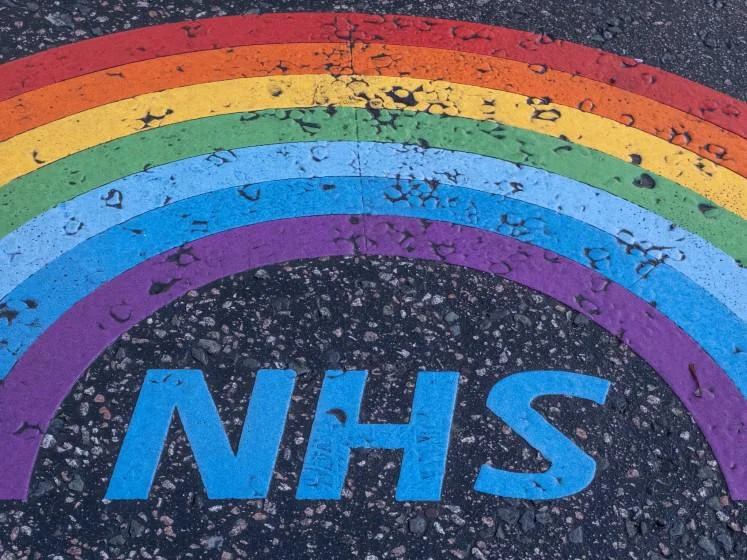Volunteering in the NHS: Covid-19 Volunteer Responders Programme significantly increased volunteers' overall life satisfaction

Levels of wellbeing increased significantly for individuals who participated in the NHS Volunteer Responders (NHSVR) programme, with effects lasting months after the volunteering period had ended.
This is according to new research from the London School of Economics and Political Science (LSE), the National Health Service (NHS) and Royal Voluntary Service, released today (31 May) to mark Volunteers’ Week (1-7 June 2021).
In a survey of over 9,000 active participants on the NHSVR programme, the researchers found that even small acts of volunteering, including talking to at-risk individuals on the phone or helping to deliver groceries boosted participants sense of wellbeing and increased feelings of belonging within the local community.
Importantly, the authors found that the positive impacts on wellbeing lasted up to three months after the last task had been completed. Volunteers who carried out a task, for example, rated their life satisfaction as 0.17 points (on a scale of 0-10) higher, than those who had volunteered but not yet carried out a task. An increase which equates to 25% of the size of being employed as opposed to being unemployed.
Existing research has shown that volunteering improves subjective wellbeing for people who give up their time to help others. So far, these reported effects have been correlational, with less understood about how and why volunteering improves wellbeing. This paper aimed to understand and estimate these causal effects, finding that wellbeing significantly increased because of volunteering.
In addition, the NHSVR programme provided a strong cost-benefit ratio.
Commenting on the findings, report co-author Dr Chris Krekel said:
"Volunteers benefited tremendously: if we try to put a monetary value on those wellbeing benefits, it comes in at around £1,800 each. When multiplied by the 250,000 volunteers reached by July 2020 - this amounts to about 140 times the cost of the programme, so it creates enormous social value – and this is to say nothing of the benefits to the recipients of the volunteering."
The authors recommend that the NHSVR programme be used as a model to replicate in society, both at local and national levels, to increase wellbeing.
Professor Paul Dolan added:
"The NHS Volunteer Responders was the largest mobilisation of pro-social action in the UK since the end of the WWII. The programme shows just how good helping other people can feel. We could take the lessons and impacts from this programme as a model for a National Volunteering System (NVS)."
NHS Volunteer Responders is a scheme established by the NHS in England as part of the COVID-19 response, involving volunteers who carry out simple, non-medical tasks to support people.
Delivered by Royal Voluntary Service and GoodSAM, the programme uses micro-volunteering technology to recruit and deploy volunteers. Since the programme’s launch in March 2020, the nearly 436,000 on-duty NHS Volunteer Responders have played a vital role in keeping people safe and have now completed more than 1.9 million tasks.
NHS Volunteer Responders provide support with transport to medical appointments, collecting shopping, medication, or other essentials, and by making ‘check in and chat’ calls to people who would enjoy regular phone contact and friendly conversation.